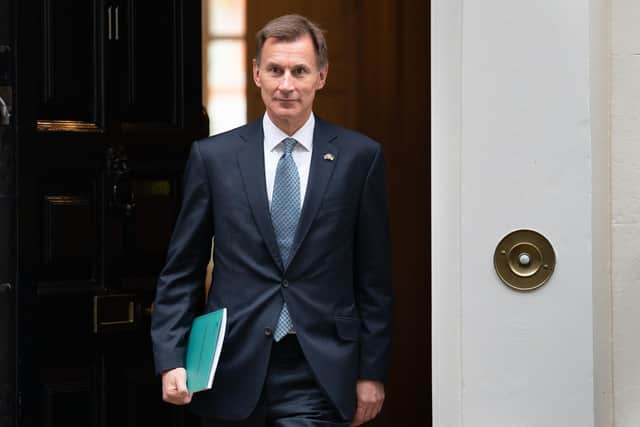- David Alexander


To describe this as a shock is something of an understatement but, in truth, it should have been expected, although it could have been delivered in a more staged way. The result has been increased mortgage rates which will remain higher than in recent years simply because they have been at a record low for a long time and were inevitably going to rise at some point.
House prices, which have been part of this year’s rollercoaster, are currently stabilising but from a remarkable rise. Average prices in Scotland rose 6.2 per cent over the last year with Dundee increasing by 11.6 per cent, overtaking Aberdeen for the first time ever.
Advertisement
Hide AdAdvertisement
Hide AdThese are large increases in Scotland where annual growth is usually around the two to three percentage points. Therefore, any slowing in this increase is to be expected and is normal. The last two to three years price increases were the unusual period rather than the more recent activity.


Detached homes have been the star financial performers of the last year, if not in percentage terms certainly in pricing coupled with a growing geographic disparity across different parts of the country.
In the Capital detached homes have an average price of £772,085 which is more than double the Scottish average of £355,862; Glasgow is on £473,422; Scotland is at £355,362; Aberdeen is £353,350; and Dundee is £344,828. To put this in perspective in the first ten months of 2022 the average price of a detached home in Edinburgh increased by £70,182 which equates to £230.86 per day!
The last year has also seen an increase in the growing divide between Scotland and the rest of the UK in the application of stamp duty. The reduction in Stamp Duty Land Tax (SDLT) confirmed by Chancellor Jeremy Hunt in the autumn statement now means there is an enormous difference in how much homebuyers are taxed on either side of the border.
First time buyers, those buying a home worth more than £325,001, and those investing in a second home or as a landlord or property investor are paying punitively higher levels of tax to purchase property. The concern is that this translates into a bigger fall in prices and slower recovery in the housing market north of the Border in the coming year.
The autumn statement also confirmed that the nil rate Inheritance Tax (IHT) threshold of £325,000 is to be frozen until 2028 which means that more homeowners will pay greater tax on their estates for the next five years. If the IHT nil rate threshold had kept pace with inflation it should, by October 2022, be at £473,784 which is 45.8 per cent higher than it currently is.
For the rental market in Scotland the biggest issue in 2022 was the introduction of the rent freeze in September. This action dealt a severe blow to the sector which was already struggling with unprecedented demand and limited supply.
Since the freeze rents were introduced, rents have risen substantially, supply has weakened and investment in construction of buildings for the private rented sector has been put on hold until some clarity emerges about whether the rent freeze is permanent. If the policy continues beyond 31 March 2023, then this will have serious consequences for the private rented sector and the tenants who live in it.
Advertisement
Hide AdAdvertisement
Hide AdThe last year has seen rocketing home prices, rapid interest rate rises and a sudden slowing of the housing market in response. For the private rented sector demand has never been greater and has been exacerbated by government policies which will make the situation worse for tenants in the future. It’s been a lively year but one that most of us would prefer not to repeat.
David Alexander is CEO of DJ Alexander Scotland Ltd
Comments
Want to join the conversation? Please or to comment on this article.